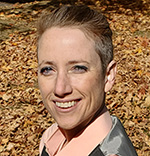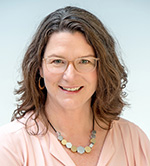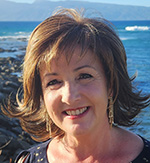When Should Mental Health Professionals Consider an Extreme Risk Protection Order?

When balancing client rights to privacy and autonomy with the need to protect others from serious harm, mental health professionals should consider Extreme Risk Protection Orders, or ERPOs, as one option, and perhaps as an option that may be used in conjunction with others, says Allan Barsky, JD, MSW, PHD, an NASW-Florida member.
In a column he wrote in Psychology Today, Barsky, a professor of social work at Florida Atlantic University, says, “Unfortunately, there is little research available to determine whether and when ERPOs may be preferred to civil commitment or other options. Further, some law enforcement agencies and officials are reluctant to use ERPOs even when they are legally authorized.”
This reluctance may be attributed to concerns about due process, the sufficiency of evidence, and potential for adverse outcomes, he says.
Protecting people from gun violence may require cooperation among many people, including clients, family members, friends, mental health professionals, law enforcement, teachers, and other possible sources of support.
“It is important for them to have frank and honest discussions of the best way to manage risks, including the possible use of ERPOs as part of a comprehensive plan that promotes public safety, client dignity, and psychosocial well-being.
Sheliah Gauch

Why is the mental health of caregivers suffering, asks NASW-Massachusetts member Sheliah Gauch.
In a column she wrote for Psychology Today, Gauch notes qualitative data from countless caregivers show that caregiver blame persists. In addition, caregivers take on barriers to care, chronic sorrow, and trauma without hesitation, she writes.
“Their children are who matter most; helping them often leads to forgetting to help themselves,” she states. “Providers may also be so focused on the child, they miss asking about caregivers.”
Having a child with underlying medical issues adds to the stress.
“My own children’s mental health journey has led me to wonder: Is my family history with mental illness really a family history with complicated medical issues?” Gauch writes.
“I have also found healing from my own depression and anxiety as an adult through learning about this medical connection. Let’s revolutionize how we view mental illness and how we help people—children and caregivers alike.”
Julia Rose

A portion of Iowa’s rich abolitionist history will be highlighted during the Iowa Underground Railroad Bike Ride. It is presented by the NASW Iowa Chapter, the Des Moines branch of Black Girls Do Bike, and the Iowa Bicycle Coalition.
The two-and-a-half-day ride combines learning, endurance and community in two southwest Iowa towns, says a story posted at LittleVillageMag.com. Julia Rose, NASW-Iowa board president, says a bicycle tour provides the ability “to slow down and see things and process things a little bit better than driving.”
“I like bike rides where people will have a goal together and a mission,” Rose is quoted as saying. “It just seemed like a way to build camaraderie, have conversations that we might not usually take time to have.”
“It’s the stories of the people who are escaping slavery that are at center here,” she said. “And then it’s the stories of the people who also risked life and home and family in order to do what was right and didn’t just talk about it.”
Jennifer Calder

Jennifer Calder, LCSW, says a lot of her clients have approached her with anxiety about student loan repayments.
“I’ve definitely talked to people about them,” says Calder, an NASW-Vermont member. “And they’re very stressed out ... .”
Calder shared these comments in a story posted at VermontPublic.org. She notes that people form beliefs about money by age 7. And people can often hold anywhere from 50 to 200 beliefs about money.
While it’s difficult to talk about money, it’s important to do so, Calder says. Understanding that everyone has different money beliefs or scripts can help people come to agreements or remove blame surrounding money in relationships. Also, having all the facts about your money situation can eliminate some anxiety as well.
Andrea Marano

Bullying is more prevalent than some parents may know. One out of five 12- to 18-year-old students report being bullied during the school year, notes a story at Care.com. Underrepresented and underserved youth are more likely to experience negative feedback from peers.
NASW-New York State member Andrea Marano, LCSW, notes in the article, “In order for something to be bullying rather than everyday conflict, it must be all of these things: intentional, repeated, aggressive, and the creation of or capitalization of a power imbalance due to differences in identities, whether that is racial, gender, sexual orientation, ability or other identifying factors.”
Marano says parents can support their children during this difficult time. “It is critical that parents consistently empower their children to advocate for themselves, identify who can support them when the parent isn’t present, and practice phrases and strategies to use to combat this type of behavior.”
Staci M. Knox

The pressure to maintain a perfect online image, fueled by constant comparison to peers, can lead to feelings of inadequacy and anxiety, says NASW-Illinois member Staci M. Knox, LCSW, manager of psychological services at OSF Saint Anthony’s Health Center.
“Young people may experience fear of missing out when they watch the highlight reels of their friends’ lives, bringing on feelings of loneliness and isolation,” she said in story posted at TheTelegraph.com. “In addition, exposure to cyberbullying and negative comments can take a toll on their self-esteem, putting them at risk of experiencing depression.”
OSF officials said it’s important for caregivers and school officials to understand social media and how to reduce its negative impact.
“Sometimes conversations about mental health can reveal that a young person has thoughts or plans to hurt themself or another person,” Knox says in the story. “If this happens, they are in crisis and need help promptly.”
To read other media stories like these, visit socialworkersspeak.org